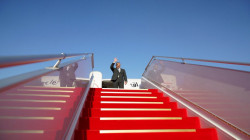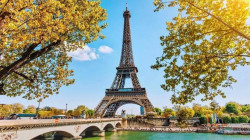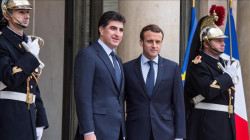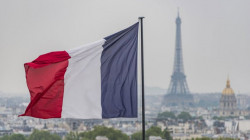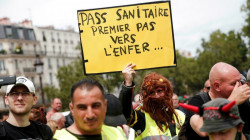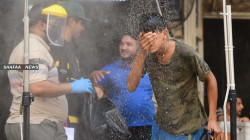Culprit in deadly attack on Paris Kurds transferred to psychiatric unit
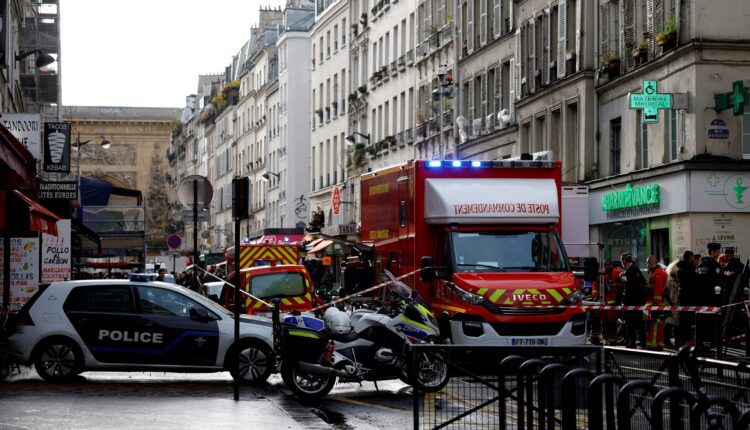
Shafaq News/ A French man suspected of shooting dead three Kurdish people in central Paris has confessed to a “pathological” hatred of foreigners, the Paris prosecutor said Sunday, a day after the suspect was transferred to a psychiatric unit.
The suspect – a 69-year-old White man with a history of weapons offences – was removed from custody for health reasons on Saturday and taken to a police psychiatric facility pending an appearance before an investigating judge.
He told investigators he acted out of a "pathological hatred of foreigners", Paris Prosecutor Laure Beccuau said in a statement on Sunday, describing the suspect as "depressive" and "suicidal".
The deadly shooting at a Kurdish cultural centre and a nearby hairdressing salon on Friday sparked panic in the city's bustling 10th district, home to several shops and restaurants and a large Kurdish population.
The shooting, in which three other people were injured, revived the trauma of three unsolved murders of Kurdish activists in Paris in 2013 that many blame on Turkey.
Many in the Kurdish community have expressed anger at the French security services, saying they had done too little to prevent the shooting.
The frustration boiled over on Saturday and furious demonstrators clashed with police in central Paris for the second day running after a tribute rally.
The capital's police chief Laurent Nunez said 31 officers and one protester were injured in the disturbances, while 11 people were arrested, "mainly for damage".
Earlier on Saturday, the Paris prosecutor had extended the suspect's period of detention for 24 hours and gave an extra charge of acting with a "racist motive".
He was already being held on suspicion of murder, attempted murder, armed violence and violating weapons legislation.
Racist violence
The suspect – a retired train driver named as William M. by French media – was charged with racist violence last year after allegedly stabbing migrants and slashing their tents with a sword in a park in eastern Paris.
A gun enthusiast with a history of weapons offences, he was released on bail earlier this month pending a court hearing.
The suspect initially targeted the Kurdish cultural centre on Friday before entering a hairdressing salon where he was arrested.
He was found with a case loaded with a box of at least 25 cartridges and "two or three loaded magazines", the source close to the case said.
The weapon was a "much-used" US Army Colt 1911 pistol.
Of the three wounded people, one was being given intensive care in hospital and two were treated for serious injuries.
According to the Kurdish Democratic Council in France (CDK-F), the dead included Emine Kara, a leader of the Kurdish Women's Movement in France who had fought against the Islamic State (IS) group in Syria.
The other victims were Abdulrahman Kizil and Mir Perwer, a political refugee and an artist, according to the CDK-F.
A police source confirmed Kara and Kizil were among the victims.
Following the killings, French President Emmanuel Macron said Kurds in France were "the target of an odious attack" and ordered senior security officials to meet with leaders of the Kurdish community.
'Pain and disbelief'
Thousands of Kurds gathered at Place de la République in central Paris on Saturday afternoon where they held a minute of silence for the three killed and those "who died for freedom".
"What we feel is pain and disbelief because this is not the first time this has happened," 23-year-old student Esra told AFP.
Police fired tear gas after clashes erupted and the demonstrators threw projectiles at officers. AFP journalists at the scene said at least four cars were overturned and one burnt.
More than 1,000 people held a similar peaceful rally in the southern port city of Marseille but it ended in clashes with officers and at least two police cars were set on fire.
Three Kurdish women activists were killed in 2013 in the same area of Paris and the victims' families have long pointed the finger at Turkey for masterminding the deaths.
Despite the suspicions, there appears to be no evidence that Friday's shooting had political motives or was linked to Turkey.
Often described as the world's largest stateless people, the Kurds are a Muslim ethnic group spread across Syria, Turkey, Iraq and Iran.
Turkey regularly launches military operations against the PKK, a Kurdish organisation designated as terrorist by Ankara, as well as Kurdish groups it accuses of being allies in neighbouring Syria and Iraq.
More recently, Kurdish areas in Iran have borne the brunt of the Islamic Republic's deadly crackdown on protests.
